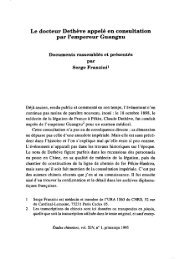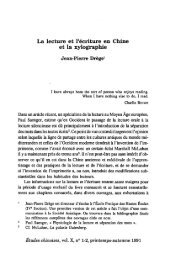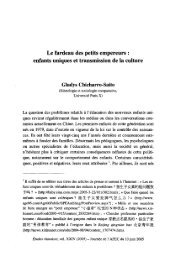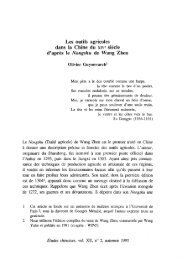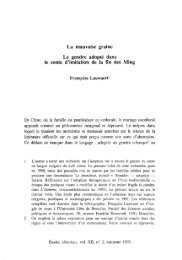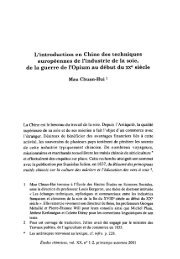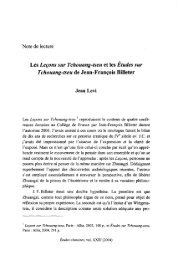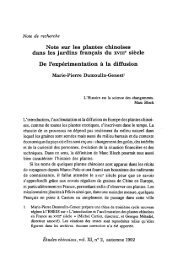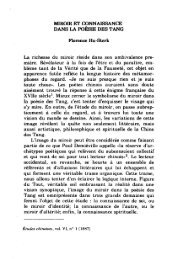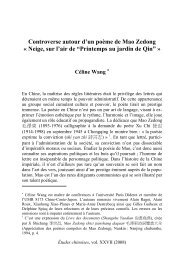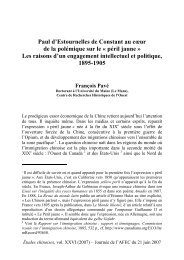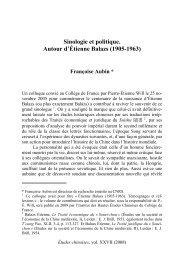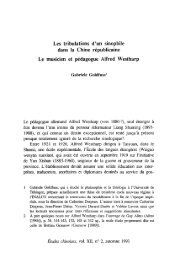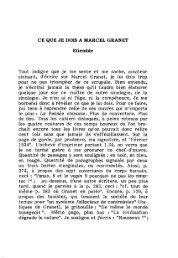Create successful ePaper yourself
Turn your PDF publications into a flip-book with our unique Google optimized e-Paper software.
Comptes rendus<br />
or guizi M^F - it was the Euro-Americans who were to blâme: "It was<br />
thèse acts of violence [committed by Westerners against the local populace],<br />
rather than the exotic appearance of Westerners, that had contributed<br />
to the rise of the epithets/an gui and gui zi among the Cantonese and their<br />
spread to the rest of the country after the first Opium War." (p. 99). The<br />
évidence presented hère is extremely thin and begs for solid linguistic<br />
analysis, not vitriol inspired by the ire of a Franz Fanon.<br />
Chapter 4, "Translating International Law," is little changed from its<br />
earlier incarnation in Liu's edited volume, Tokens of Exchange (Duke<br />
University Press, 1999), and I hâve commented (largely favorably) on that<br />
chapter elsewhere 4 . Her next chapter contains some interesting material on<br />
the unique figure of Gu Hongming l|ï#i§$& (1857-1928) with his extraordinary<br />
éducation in both Chinese and Western languages and his undying<br />
affection for the Qing dynasty. This chapter also contains a number of<br />
passing mentions of the "Boxer Uprising" of 1900, which Liu prefers to<br />
represent by its Chinese-language désignation "Yihe Tuan" (or "Yihe<br />
Quan"). The Westerners at the turn of the last century dubbed this group<br />
Boxers because of the martial arts in which they engaged, practices they<br />
believed would make them impervious to Western bullets and which appeared<br />
to Westerners as if they were boxing. At one point she notes that<br />
Gu, too, disliked the term "Boxers" and wrote: "The name of the original<br />
legitimate first so-called 1900 society 'Yi-ho-t'uan' may be translated as<br />
'friendly society of good men and true' or 'society of honest men for<br />
mutual defence'" (p. 174). To leave this statement uncommented on, as<br />
Liu does, borders on the irresponsible. Gu Hongming was certainly playing<br />
with his Anglophone readers, but Liu knows full well (as Gu certainly<br />
did) that his translation is completely dishonest. "Yihe Tuan" might be<br />
rendered "righteous and harmonious group (or band)"; "Yihe Quan"<br />
would then be "righteous and harmonious fists," much as if it were the title<br />
of a kung-fu movie in which martial arts figured prominently. And, to<br />
suggest that they were a "popular nationalist movement" (p. 168) represents<br />
quite a leap over and beyond most non-PRC scholarship. However,<br />
what the Boxers shared with Gu Hongming was a nascent anti-imperialism,<br />
514



